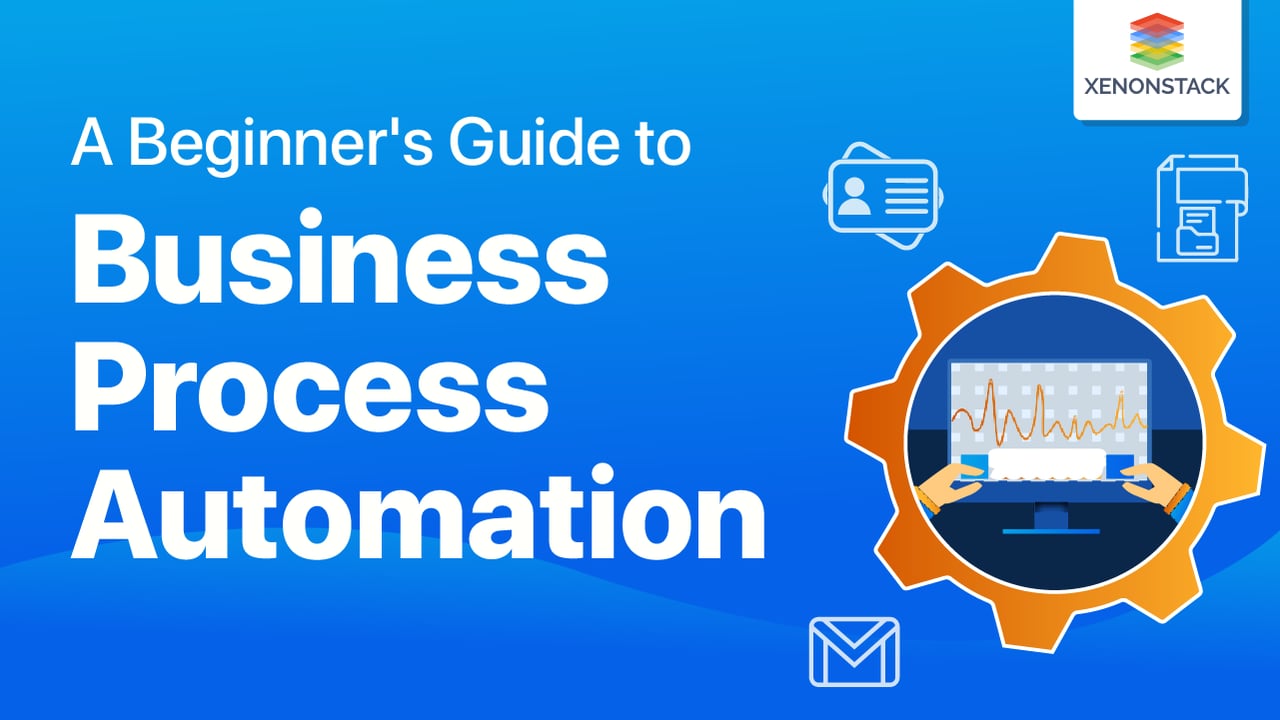
Introduction to Business Process Automation
Business Process Automation (BPA) uses technology to automate and streamline complex business processes. It is a powerful tool that can help organizations to increase efficiency, reduce costs, and improve accuracy. BPA can be applied to a wide range of processes, including financial and accounting processes, human resources processes, and customer service processes.
AI is one of the most crucial ingredients of Intelligent Automation. Taken From Article, Intelligent Automation Tools and Its Challenges
Business processes are a crucial part of any organization's operations. They make companies operate efficiently and prevent them from being paralyzed by routine tasks. While some processes can be automated, most businesses must adopt an all-or-nothing approach to enterprise process automation. Businesses should only focus on a particular area of the process once they have achieved 100 percent effectiveness. The resources they invest in it will pay off in reduced costs, higher team member engagement, and improved customer service. This article explains business process automation, different types, typical cost estimates for various BPA projects, and recommended software platforms for enterprise-level business process implementation.
What is Business Process Automation?
It is using automation to make routine business processes more effective. The term business process is broad and refers to a wide range of activities and functions, including but not limited to the following:
Customer relationship management - Manufacturing - Supplier relationships - Service delivery - Supply chain management - Taxation - Regulatory compliance - etc.
It can be used to gain insight into how humans work and how these work interactions can be automated. It can also be used to implement business logic within an organization. BPA aims to automate non-financial activities that make up the core business functions of an organization. The focus of it is not on the result but on the process that leads to that result. That is why it is often referred to as process improvement.
Why is Business Process Automation important?
The benefits of business process automation are numerous. They include:
Increased Efficiency
Automation saves organizations time and money by eliminating duplicate tasks and correcting production or supply chain bottlenecks.
Improved Customer Service
Automation enables organizations to improve the way customers interact with them by automating routine questions.
Improved Product Quality
Businesses can reduce the risk of defects by automating processes with a high degree of variability. This risk is passed on to the customer when goods or services are defective.
Improved Workflow
By automating processes with a high degree of variability, businesses can reduce the need for external agencies such as lawyers, accountants, and inventory management specialists to support their operations.
Reduced Risks
Business process automation reduces the risk that human errors will cause significant damage to the business. When operations are automated, human error is treated as an ordinary occurrence technology can prevent or minimize.
Significant Reduction in Time
BPA systems can automate many tasks that would otherwise need to be done manually. For example, a BPA system can automatically process invoices, perform data entry, or send out reminders to customers. This can free employees to focus on more critical tasks, such as strategic planning or customer service.
Increase Accuracy and Reduce Errors
BPA systems can be programmed to follow the rules and procedures, ensuring that all tasks are performed consistently and accurately. For example, an automated financial process can ensure that all invoices are processed similarly, reducing the risk of errors. Additionally, its can help reduce fraud by providing a clear audit trail of all transactions.
Improve Customer Service
Automated processes can help organizations to respond more quickly to customer inquiries and resolve issues more efficiently. For example, a BPA system can automatically send an email or text messages to customers to let them know when their order has been shipped or their account has been updated.
An autonomous approach for making a knowledgeable and concise decision about the systems. Taken From Article, Intelligent Decisioning System
How to implement BPA?
Implementing business process automation can be challenging, requiring a significant investment in technology and resources. Organizations must evaluate their current processes and identify which ones can be automated. They must also select and implement the appropriate technology, such as robotic process automation (RPA) software, and train employees to use it. Additionally, organizations must ensure that their BPA systems are integrated with their existing systems and can meet the organization's specific business requirements.
What are the types of Business Process Automation?
There are several different types of BPA technologies that organizations can use to automate their processes. These include:
- Workflow Automation: This type of technology is used to automate the flow of information and tasks between different departments and systems. It can be used to manage and track the progress of projects, approvals, and other processes.
- Robotic Process Automation (RPA): Using software robots, BPA technology automates repetitive and time-consuming tasks. Robotic Process Automation can automate data entry, invoice processing, and customer service tasks.
- Business Intelligence (BI): BPA technology analyzes and reports on business data. It can identify trends, patterns, and insights to help organizations make more informed decisions.
- Business Process Management (BPM): It manages and optimizes business processes. It can design, model, execute, and monitor business processes.

What are the best Business Process Automation Tools?
Top 5 Business Process Automation tools are below highlighted:
- IBM Business Automation Workflow
- Pega Workforce Intelligence
- Pipefy
- Appian Low-Code Platform
- Bizagi Modeler
Conclusion
Business process automation can help your organization reach more customers, increase revenue, and meet deadlines. However, it is not a technology solution and must be integrated into the company workflow. It is about more than just implementing automation within an organization. It is about implementation and implementation alone. It is about aligning business processes with the organization's strategy to help them achieve their goals.
- Know how to get started with Cognitive Robotic Process Automation
- Explore here the RPA Services and Consulting Solutions
.webp?width=1921&height=622&name=usecase-banner%20(1).webp)


